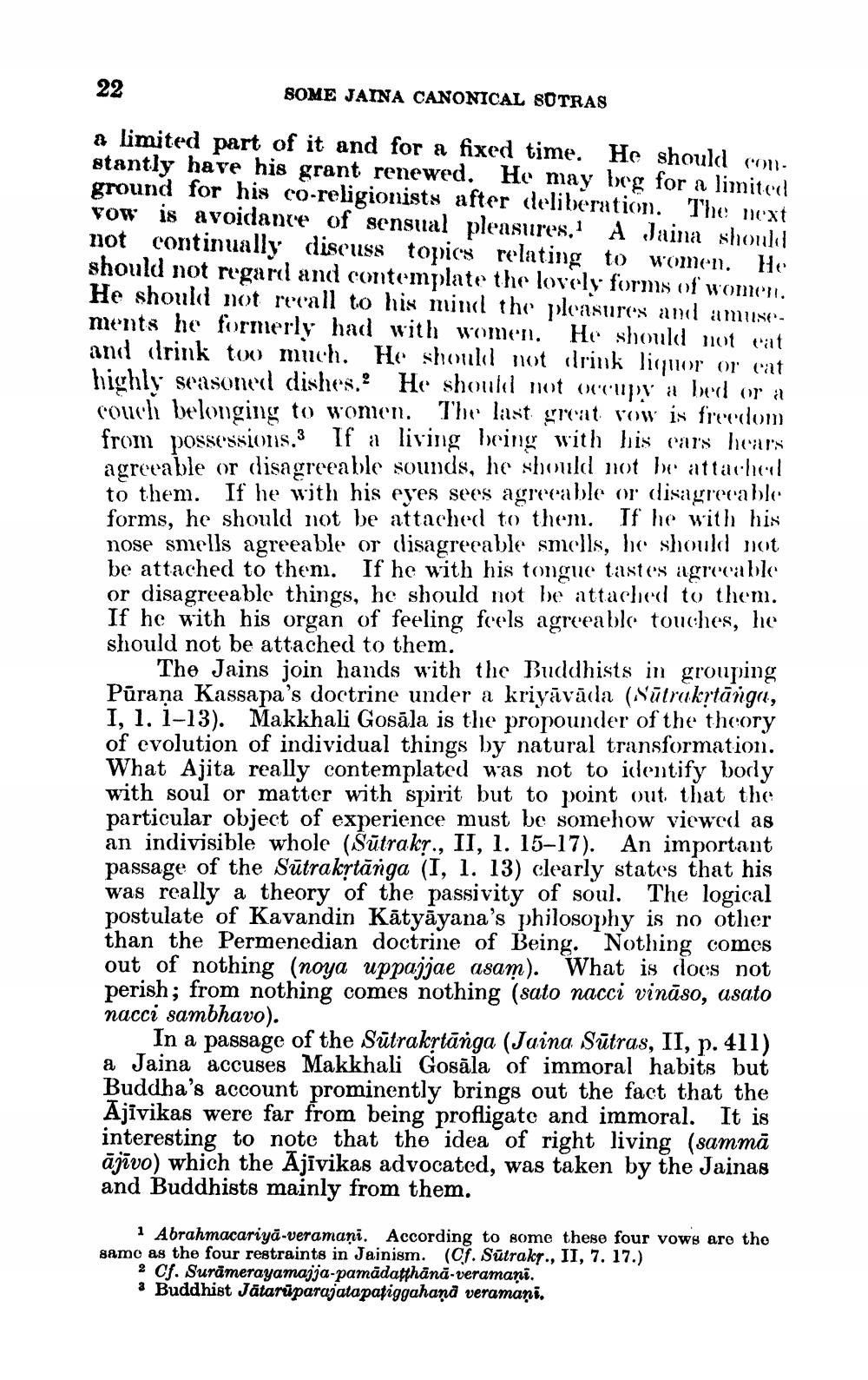________________
SOME JAINA CANONICAL SOTRAS
a limited part of it and for a fixed time. He should constantly have his grant renewed. He may beg for a limited ground for his co-religionists after deliberation. The next Vow is avoidance of sensual pleasures." A Jaina should not continually discuss topics relating to women. He should not regard and contemplate the lovely forms of women. He should not recall to his mind the pleasures and amusements he formerly had with women. He should not eat and drink too much. He should not drink liquor or eat highly seasoned dishes. He should not occupy a bed or a couch belonging to women. The last great row is freedom from possessions.3 If a living being with his car's hear's agreeable or disagreeable sounds, he should not be attached to them. If he with his eyes sees agreeable or disagree forms, he should not be attached to them. If he with his nose smells agreeable or disagreeable smells, he should not be attached to them. If he with his tongue tastes agreeable or disagreeable things, he should not be attached to them. If he with his organ of feeling feels agreeable touches, he should not be attached to them.
The Jains join hands with the Buddhists in grouping Pūraņa Kassapa's doctrine under a kriyāvāda (Sūtrakrtāngai, I, 1, 1-13). Makkhali Gosāla is the propounder of the theory of evolution of individual things by natural transformation. What Ajita really contemplated was not to identify body with soul or matter with spirit but to point out that the particular object of experience must be somehow viewed as an indivisible whole (Sūtrakr., II, 1. 15–17). An important passage of the Sūtrakrtănga (I, 1. 13) clearly states that his was really a theory of the passivity of soul. The logical postulate of Kavandin Kātyāyana's philosophy is no other than the Permenedian doctrine of Being. Nothing comes out of nothing (noya uppajjae asam). What is does not perish; from nothing comes nothing (sato nacci vināso, asato nacci sambhavo).
In a passage of the Sūtrakrtānga (Jaina Sūtras, II, p. 411) a Jaina accuses Makkhali Gosāla of immoral habits but Buddha's account prominently brings out the fact that the Ajīvikas were far from being profligate and immoral. It is interesting to note that the idea of right living (sammā ājīvo) which the Ājivikas advocated, was taken by the Jainas and Buddhists mainly from them.
1 Abrahmacariyā-veramani. According to some these four vows are the same as the four restraints in Jainism. (Cf. Sūtrakr., II, 7. 17.)
2 Cf. Surāmerayamajja-pamādatthānā-veramani. 3 Buddhist Jätarūparajatapațiggahand veramaņi.




